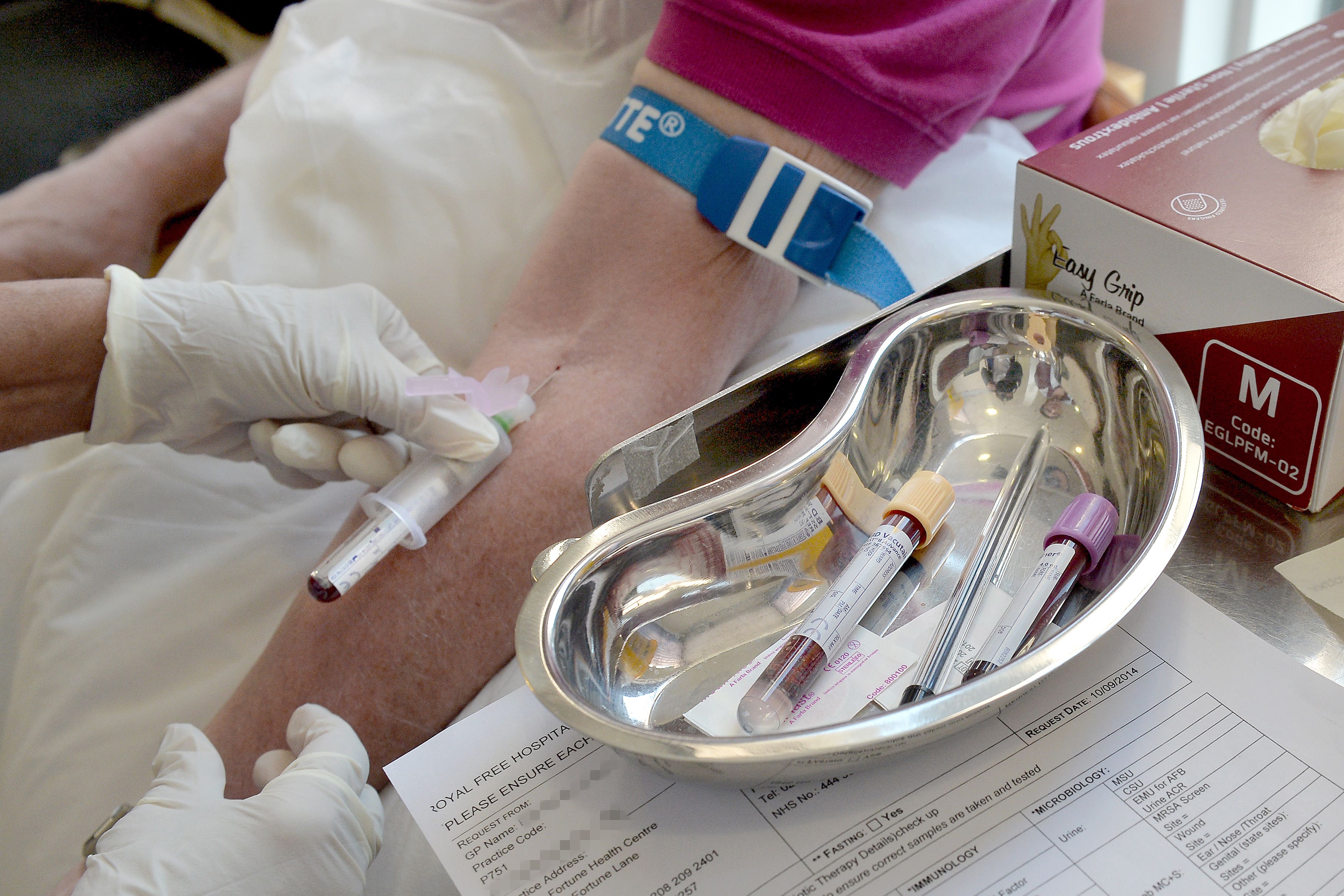New blood test could be an early warning for child diabetes – study
Scientists say that testing for fatty acids could make it easier to identify children at risk of various conditions.

Your support helps us to tell the story
From reproductive rights to climate change to Big Tech, The Independent is on the ground when the story is developing. Whether it's investigating the financials of Elon Musk's pro-Trump PAC or producing our latest documentary, 'The A Word', which shines a light on the American women fighting for reproductive rights, we know how important it is to parse out the facts from the messaging.
At such a critical moment in US history, we need reporters on the ground. Your donation allows us to keep sending journalists to speak to both sides of the story.
The Independent is trusted by Americans across the entire political spectrum. And unlike many other quality news outlets, we choose not to lock Americans out of our reporting and analysis with paywalls. We believe quality journalism should be available to everyone, paid for by those who can afford it.
Your support makes all the difference.A new type of blood test could be an early warning for diabetes and other obesity-related complications in children, new research suggests.
Scientists say that testing for fatty acids could make it easier to identify children at risk of conditions linked to obesity – including type two diabetes, liver and heart disease.
Machines that test blood plasma in babies already exist in UK hospitals, and researchers suggest these could be used to help doctors spot early signs of disease in children quicker.
Early recognition of children at risk for these life-threatening diseases is crucial
This would also enable them to access the right treatment.
Dr Karolina Sulek, who was part of the study and performed analysis at the Steno Diabetes Centre Copenhagen (SDCC), said: “Early recognition of children at risk for these life-threatening diseases is crucial.
“The study provides strong evidence of the great need for obesity management and gives parents confidence to intervene in their children’s life more compassionately, helping them to lose weight.”
The findings also identify new lipids (fatty acids) that contribute to health conditions like blood pressure, challenging the common idea that cholesterol is a leading cause of complications around obesity in children.
Lipids have traditionally been thought to be fatty acids in the body, either good or bad types of cholesterol or triglycerides, fats found in the bloodstream that are the most common in the human body.
But current evidence suggests there are actually thousands of different types of lipids in the body, each with separate functions.
Dr Cristina Legido-Quigley is a group leader in systems medicine at King’s College London, head of systems medicine at the SDCC.
The principal author said: “For decades, scientists have relied on a classification system for lipids that have split them into good and bad cholesterol, but now with a simple blood test we can assess a much broader range of lipid molecules that could serve as vital early warning signs for illness.
“In the future, this has the potential to be an entirely new way to evaluate someone’s personal risk of disease and by studying how to change lipid molecules in the body, we could even prevent metabolic diseases like diabetes altogether.”
For the study, researchers assessed lipids in the blood of 1,300 children with obesity, and later 200 of them were enrolled in the Holbaek-model – a programme for people with obesity that is popular in Denmark.
The findings, published in the Nature Medicine journal, showed that amongst those who followed the programme, counts of lipids tied to diabetes risk, insulin resistance and blood pressure decreased, despite limited improvements in some children’s BMI.